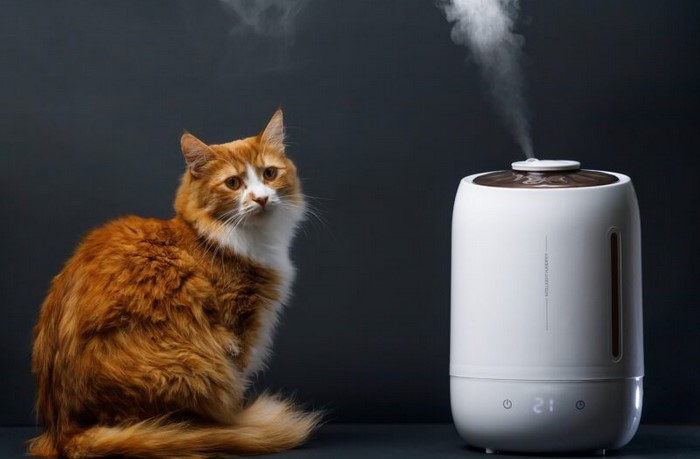
As pet owners, we always want the best for our furry companions, and that includes keeping them healthy and happy. While conventional veterinary care has made incredible advances in treating illnesses, many pet owners are turning to alternative methods to provide more natural and preventative care for their pets. Holistic pet care has emerged as a popular approach to pet health, emphasizing natural, non-invasive therapies, and focusing on the overall well-being of pets, rather than just treating symptoms. This article will explore various holistic pet care practices, how they benefit pets, and why they are gaining traction in the pet care community.
Understanding Holistic Pet Care
Holistic pet care is a philosophy that views pets as more than just their physical bodies; it takes into account their emotional, mental, and spiritual health as well. The goal of holistic care is to support the body’s natural healing abilities, improve quality of life, and enhance overall vitality by using natural, non-toxic methods. This approach can complement traditional veterinary medicine, helping pet owners to address both the symptoms and the root causes of their pet’s health concerns.
Unlike conventional medicine, which often focuses on treating a specific disease or condition, holistic pet care looks at the animal’s entire lifestyle, including its diet, environment, and emotional state. It includes natural therapies such as nutrition-based care, herbal treatments, massage, and acupuncture to help prevent and manage health problems.
1. Natural Diet and Nutrition
One of the most important aspects of holistic pet care is the food you provide for your pet. Nutrition plays a critical role in maintaining your pet’s overall health and preventing many common illnesses. A balanced, species-appropriate diet is the foundation of holistic care. While commercial pet foods often contain preservatives, fillers, and artificial ingredients, a natural diet focuses on fresh, whole foods that support the pet’s health.
For dogs and cats, this can include raw or lightly cooked meats, vegetables, and high-quality grains. Many pet owners are choosing to feed their pets raw diets, also known as “BARF” (biologically appropriate raw food), which includes raw meats, bones, and vegetables. Proponents of raw feeding believe that it more closely mirrors a pet’s natural diet and offers a higher level of nutrition compared to processed pet foods.
Supplements, such as omega-3 fatty acids, probiotics, and herbal vitamins, are also commonly used in holistic pet care. Omega-3s can help reduce inflammation, improve skin and coat health, and support cognitive function. Probiotics help maintain a healthy gut, which is essential for overall immunity and digestion.
2. Alternative Therapies for Wellness
Holistic pet care often incorporates various alternative therapies that promote overall well-being. These therapies can be used alongside traditional treatments to help manage chronic conditions, improve mobility, and reduce stress.
Acupuncture and Acupressure
Acupuncture, the practice of inserting very fine needles into specific points on the body, is often used in holistic pet care to treat pain, inflammation, and stress. The theory behind acupuncture is that it stimulates the body’s energy (or “qi”) and encourages natural healing processes. Many holistic veterinarians use acupuncture to treat conditions such as arthritis, digestive disorders, and anxiety in pets.
Acupressure, a similar technique, uses gentle pressure rather than needles to stimulate energy points. It’s a great option for pets who are afraid of needles or who may be more sensitive. Acupressure can be used to relax the pet, reduce pain, and improve circulation.
Herbal Remedies
Herbs have been used for thousands of years to treat a variety of ailments, and many holistic pet care practitioners incorporate them into their treatments. Herbal remedies can support the immune system, reduce inflammation, and promote relaxation. Common herbs used in pet care include:
- Chamomile: Known for its calming properties, chamomile is often used to help pets with anxiety or digestive issues.
- Echinacea: A powerful immune booster, echinacea can help prevent illness and support recovery from infections.
- Turmeric: This anti-inflammatory herb can be particularly beneficial for pets suffering from arthritis or joint pain.
Herbal treatments should be used with caution and under the guidance of a holistic veterinarian, as some herbs can interact with medications or cause side effects.
3. Mental and Emotional Well-Being
Holistic pet care also emphasizes the importance of mental and emotional health. Just like humans, pets can experience stress, anxiety, and emotional imbalances, which can manifest in behavioral problems or physical health issues. Addressing the emotional needs of your pet is a key component of holistic care.
Stress Reduction Techniques
One effective way to improve a pet’s emotional well-being is by providing stress reduction techniques. Pets, especially dogs, benefit from regular exercise and mental stimulation, which can help alleviate stress and anxiety. Playtime, puzzle toys, and positive reinforcement training are excellent ways to keep pets mentally engaged and happy.
Massage therapy is another valuable tool in promoting relaxation and reducing stress. Gentle massage can relieve muscle tension, improve circulation, and promote a sense of calm. Some pet owners also turn to aromatherapy, using pet-safe essential oils like lavender to help calm their pets during stressful situations.
Socialization and Environmental Enrichment
For pets, especially dogs, socialization is crucial for mental health. Regular interactions with other animals and people help prevent behavioral issues like aggression or excessive fear. Providing a stimulating environment with plenty of toys, comfortable resting areas, and exposure to new experiences can significantly improve a pet’s emotional well-being.
Holistic pet care provides a well-rounded approach to keeping your pet healthy, focusing on both the physical and emotional aspects of well-being. From natural diets and herbal remedies to acupuncture and stress-reduction techniques, there are numerous ways to enhance your pet’s health and quality of life. As the demand for holistic pet care continues to grow, more pet owners are realizing the value of combining traditional and alternative treatments to ensure their pets lead long, happy, and healthy lives. By embracing holistic pet care, you’re not just addressing your pet’s symptoms but enhancing their overall vitality, happiness, and well-being.